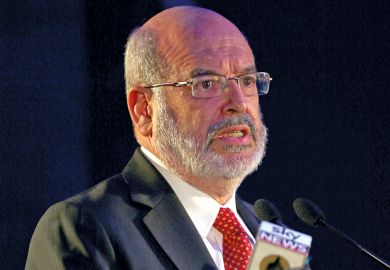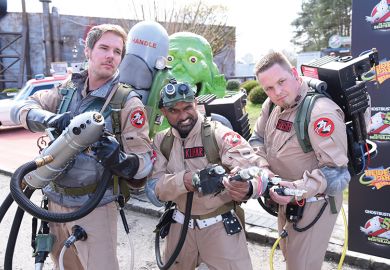Science diplomat Sir Peter Gluckman has been enlisted to head a new thinktank created to address challenges “which get buried in acute political cycles”.
Sir Peter, president-elect of the International Science Council, said the Koi Tū Centre for Informed Futures will exploit the insights that New Zealand can furnish as a diminutive nation with an advanced economy.
“By studying small countries you can see the same dynamics going on in bigger countries,” said Sir Peter, who was New Zealand’s chief science adviser for nine years. “But it’s harder to see them [in large countries] because there are too many actors. It’s more complex but the same principles are at stake.
“Countries like New Zealand have been able to be more innovative, responsive and strategic for that reason. They become the headlights for the path ahead.”
The University of Auckland thinktank will focus on national and global issues arising from rapid and far-reaching social, economic, technological and environmental change. Sir Peter said society craved information it could trust.
“The contest of ideas is increasingly taking place in an unhealthy environment of misinformation and – in many places – declining public trust in democratic, scientific and societal institutions,” he said.
“Transformations are happening around us at a scale and speed which is unique in human history. As scientists, we have a crucial role to play in ensuring decision-makers [are] armed with robust evidence.”
Sir Peter told Times Higher Education that the centre would ignore the “political cycle” to focus on middle and long-term issues. “Most thinktanks tend to get caught up in short-term transactional issues with a political focus,” he said. “Research centres tend also to do that.”
He said his centre would focus on “big issues” such as how to engage citizens in the “misinformation age”, how to promote individual resilience in the context of rapid and inevitable change, and how to make “big decisions” like the trade-offs needed to achieve sustainability.
The centre’s deputy director, Anne Bardsley, said it would help communities and governments understand complex issues in ways that led to “robust, societally accepted decisions”.
Sir Peter said New Zealand was “in a very unique position” as an advanced economy with a diverse society characterised by Indigenous people and Polynesian and Asian migration. “It’s fair to say we’ve been more willing to confront these issues than many countries,” he said.
“We’ve been innovative in our social policy; we’ve been innovative in our environmental policy. We’ve managed to be a good global citizen without relying on geostrategic power because we don’t have any geostrategic power. Therefore, we’re well respected.”
Sir Peter helped establish the International Network for Government Science Advice in 2014. “Could that have been done if I’d come from the US or Britain? I suspect not.”
Register to continue
Why register?
- Registration is free and only takes a moment
- Once registered, you can read 3 articles a month
- Sign up for our newsletter
Subscribe
Or subscribe for unlimited access to:
- Unlimited access to news, views, insights & reviews
- Digital editions
- Digital access to THE’s university and college rankings analysis
Already registered or a current subscriber?








